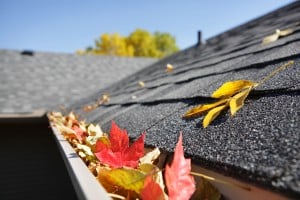
Performing routine maintenance on your rental property will ensure it’s protected from seasonal elements like the rain, snow, and cold weather of the impending winter. Although it might seem like a lot to, most fall maintenance can be done quickly and without spending much money.
With a seasonal inspections and a little preventative maintenance, you can help keep your rental property in tip top condition. You can also make expensive items like your roof or furnace last much longer, which means more money in your pocket.
Exterior Maintenance For Rentals
Caulking: Caulking and sealing openings is one of the least expensive maintenance jobs. Openings in the structure can cause water to get in and freeze, resulting in cracks and mold build up.
Roof Inspection: Ice, rain, snow and wind combined with rapidly changing temperatures and humidity wreak havoc on roofs. Check for missing or loose shingles. A slightly damaged roof can lead to water exposure which cause deterioration to insulation, wood and drywall, making electrical, plumbing and HVAC systems vulnerable. It’s better to proactively deal with repairs in the fall, than discover a leaky roof during a winter storm. Due to the importance of your roof, have a licensed, certified roofing professional check the condition of your roof.
Gutters: Once leaves start to fall, clean out the gutters and downspouts around the property. Clogged gutters can create ice dams in freezing temperatures that can cause gutters to break entirely and a cleared gutter will direct water appropriately to channel it away from the property and prevent water damage to the foundation or structure.
Animal Proofing: When cold weather hits, critters will seek refuge in the warm shelter of an accessible basement or attic. To discourage nesting on your rental property perform an exterior inspection to find any openings or points of entry an animal could crawl through. The Humane Society recommends the following tips for animal proofing your property: caulk for small holes, staple or screw hardware cloth over larger holes, or make permanent repairs. Bug screen (1/4 inch hardware cloth) will not hold up to stronger animals, such as raccoons, so 16 gauge 1 x 1 inch steel mesh is recommended for raccoons. For squirrels, solid aluminum flashing is the exclusion material of choice.
Stairwells, walkways and patios: Check the supports, stairs, and railings of decks, patios, and entry ways. Make sure the handrails can support someone slipping if wet or covered in snow or ice.
Air Conditioning Units: If you live in an area with severe winter weather, be prepared to wrap outside box units in order to protect them from rust or weather damage. And removing window units will provide the best seal to keep warm air inside during the cold winter months.
Trees: Any branches or vegetation that touches the exterior of your property could cause damage if left unattended over time. Seasonal trimmings are an excellent way to routinely manage the landscape at your property and protect your investment.
Irrigation Systems: Each season calls for different irrigation requirements to keep the property looking its best and to protect the functionality of the sprinkler system. Sprinklers with timers can often be reset, as seasonal rain will keep outside areas appropriately hydrated. As you get closer to winter weather, follow the manufacturer’s instructions for winterizing sprinkler and irrigation systems.
Interior Maintenance For Rentals
Windows and doors: Air leaks from windows and doors can cause the heating system on your property to work overtime as tenants continuously crank up the heat to stay warm. To protect the longevity of your property’s heating system (and help keep your tenant’s utility bills down) apply weather stripping or caulk to drafty spots along windows and doors.
Fireplace: A good old fashion chimney sweep will remove any debris that has built up during the fireplace’s warm weather hiatus. A clogged chimney runs the risk of igniting a chimney fire or poses a potential health risk for your tenants if the ventilation system is blocked.
HVAC System: Have your heating system inspected, serviced and cleaned at least once a year. Proper maintenance can extend the life of your furnace, postponing an expensive replacement. Remind your tenants to change air filters regularly, and provide them with extra filters to make sure it gets done – this is inexpensive maintenance tasks that can prevent major HVAC problems.
Smoke and CO Alarms: Even if you require tenants to maintain the smoke detectors and carbon monoxide alarm systems, you should make it a habit to double check they are working properly every time you inspected the property or perform routine maintenance. A passive tenant will easily forget to change the batteries, or worse, some tenants will remove them altogether.
Attic: Check your attic’s insulation to prevent ice damming on your roof, which can lead to damage and expensive repairs. Unwelcome critters can destroy insulation which will need to get repaired before winter weather makes the problem an even bigger repair.
Check in with your tenants
The changing seasons marks a perfect time to perform routine property inspections to make sure your tenants are complying to lease terms about maintaining their rental unit appropriately. This is a great time to check in with them to address any questions or concerns they may have about living on your property. Maintaining a good relationship and establishing open communication with your tenants increases the likelihood of them reporting maintenance issues immediately, rather than waiting for a small issue to become a big (expensive) problem.